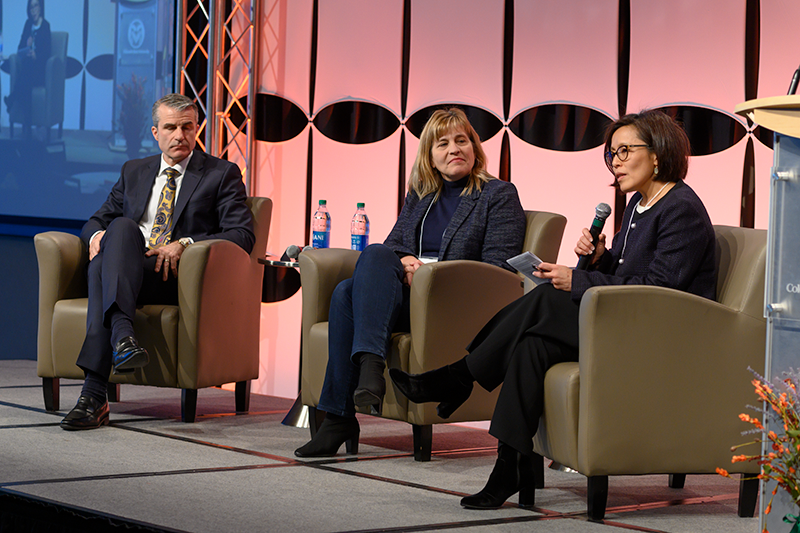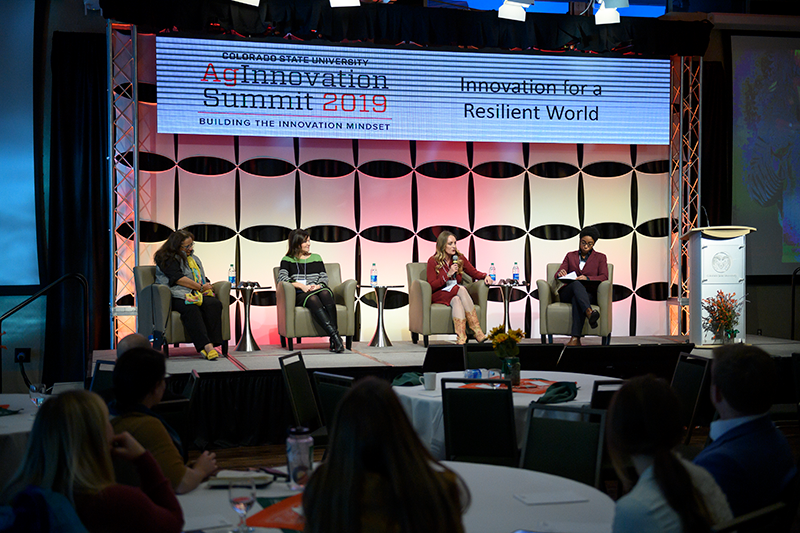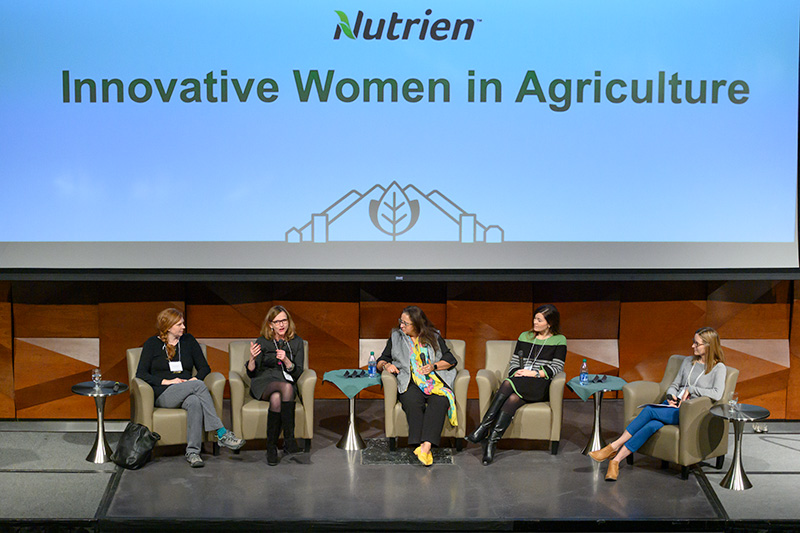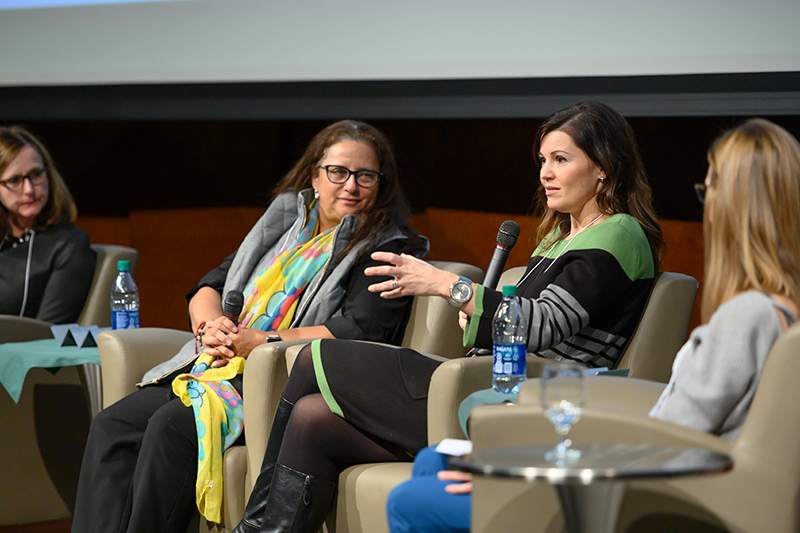



The two-day AgInnovation Summit welcomed agricultural leaders to CSU to ignite innovation.
This year’s AgInnovation Summit at Colorado State University focused on cultivating solutions to looming challenges facing the future of agriculture, including climate change and potential food shortages.
Since 2015, the College of Agricultural Sciences, in partnership with the Office of the Vice President for Research and the Office of Engagement, has invited leaders in agriculture and related fields to the summit to gain new insights and connections and catalyze continued innovation locally and globally.
This year’s summit at the Lory Student Center Dec. 5-6 focused on “Building the Innovation Mindset,” exploring how the industry can better prepare for the future through innovative technology, practices, perspectives and backgrounds.
Reimagining fundamental relationships
“One thing we’ve learned from the AgInnovation Summit is that we don’t often speak with a common voice about how to build trust among everybody who’s involved in food systems and natural resource systems,” said James Pritchett, interim dean of the College of Agricultural Sciences. “If there’s a critical issue for a college of agricultural sciences, it’s not just taking a question and sparking a great idea. It’s also explaining the importance of that idea, the process we used in order to get there, and why it matters. We have to be able to build trust and explain why things matter in order to move forward.”
Additional AgInnovation Summit coverage
Future of agriculture relies on diverse, inclusive workforce
That was exactly the focus of the Dec. 6 panel discussion, “Come to the Table,” featuring Erin Fitzgerald, CEO of U.S. Farmers & Ranchers Alliance; Philomena Morrissey Satre, director of diversity, inclusion and strategic partnerships at Land O’Lakes; and Quentin Tyler, associate dean and director for diversity, equity and inclusion at Michigan State’s College of Agriculture and Natural Resources. The panel discussed how to cultivate diverse perspectives and partners to help foster new ideas and energies to meet upcoming challenges in agriculture.
“Everybody is involved in this, and we need to get everyone what they need to be successful,” Tyler said. “Inclusion is leveraging that diversity so every voice is heard. Collaboratively, we have to work together to find solutions to make that happen.”
The two-day summit also tackled issues surrounding innovation, including disruptive technology.
In a keynote address, Robb Fraley, the former executive vice president and chief technology officer for Monsanto Company, gave an overview of the technology currently changing the landscape of agriculture, pointing to nitrogen management, machine learning and GMOs. Fraley said the roadmap to implement game-changing tech involves farmer support and outreach, investment in research and development, addressing regulatory challenges and fostering consumer acceptance.
“It takes great science to make great products,” Fraley said. “But great science without communications can lead to products consumers don’t want and regulators don’t want.”
Innovation across the industry
Beyond inclusion and disruptive tech, the summit also delved into a wide range of systemic issues facing agriculture, such as marketing the industry in the 21st century. During the summit, telling better stories emerged as a common topic in which there’s a perceived disconnect between the farmer and the consumer.
“Farmers believe that agriculture is important because our consumers’ livelihoods depend on us, when really our livelihood depends on our consumers,” said Polly Ruhland, CEO of the United Soybean Board. “We need to engage our audience more than just tell them.”
Keynote speaker Saswati Bora, head of food systems innovation at the World Economic Forum, reviewed the global forces at work — including macroeconomic, environmental, political, social, technological and financial — that are forcing agriculture to pivot toward new, innovative thinking.
According to Bora, food systems need to meet four aspirations: inclusivity, sustainability, efficiency and nutrition to address the looming hunger crisis, where an estimated 10 billion people will need to be fed by 2050.
“We need a fundamental approach to how food is produced and consumed,” Bora said. “We need innovation with a purpose.”
Women in agriculture
This year’s summit concluded with a new feature: a networking event that focused on innovative women in agriculture. The event offered an opportunity for students to connect with and learn from inspiring female leaders from the program and audience.
For more information about the summit and to view videos of the sessions, visit CSU’s AgInnovation 2019 site.